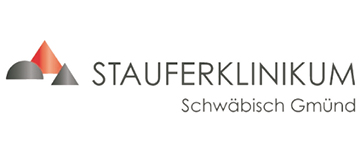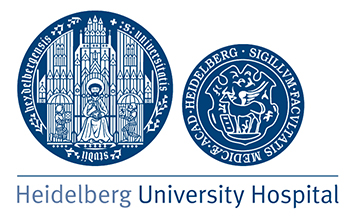Academic Partners
Charité – Universitätsmedizin Berlin
Charité is one of the largest university hospitals within Europe. It is the joint medical school for the Free University of Berlin and the Humboldt University of Berlin. Physicians and scientists perform research, cure diseases, and teach others at a top international level. Over half of German Nobel Prize winners in medicine and physiology come from Charité, including Emil von Behring, Robert Koch, and Paul Ehrlich. The university hospital is seen worldwide as a training center of excellence.
CardioSecur and Charité are working together on a prospective, non-randomized study. In this study, patients with arrhythmias receive CardioSecur Active to monitor their hearts on their own. The goal of this research project is to avoid electrophysiological examinations by using the portable ECG device CardioSecur Active, without losing diagnostic or therapeutic benefits.
HTV Prevention Study with CardioSecur
Each year approximately 300,000 heart attacks and 270,000 strokes occur in Germany which could be prevented if risk was detected early. Prof. Dr. Thomas Wendt and PhD candidate Katharina Becker from the JWG University in Frankfurt performed a cardiovascular screening on 500 symptom-free athletes and non-athletes in 21 tennis clubs in Hessen between 2013 and 2015.
The goal of this screening study was to analyse individual heart attack risk using a special questionnaire, and the risk of a suffering an embolic stroke due to atrial fibrillation. Even when “only” 20% of strokes are due to this arrhythmia, atrial fibrillation is of great significance because:
- It is commonly asymptomatic
- Often occurs sporadically
- Young and healthy individuals can also be affected
- Strokes due to atrial fibrillation often lead to more serious impairments than strokes from other causes
- In 25% of those without symptoms, a stroke is the first identifiable sign
- Events can be prevented by taking blood-thinning medications once the risk has been identified.
The 15-minute cardiovascular check included obtaining a medical history (via a questionnaire from the German Heart Foundation), measuring the pulse and blood pressure, and recording a one-minute resting ECG using the CardioSecur technology. The 500 participants ranged in age from 50 to 85, including 317 men and 183 women.
The study found 309 participants (61.8%) with abnormal results who were given the recommendation to follow-up with their general practitioner. Among these individuals, 68 (13.6%) had an increased risk of heart attack and 114 (22.8%) had abnormal ECG findings, of which three were found to have currently undiagnosed atrial fibrillation/flutter.
Both authors of the study follow recommendations from international expert associations of assessing individual heart attack risk starting at age 50 using an instrument such as the German Heart Foundation’s questionnaire, and to asses for atrial fibrillation starting at age 65 via either pulse palpation or recording a resting ECG. CardioSecur Active is well suited for this monitoring. CardioSecur detects not only atrial fibrillation but also other ECG abnormalities, and it additionally makes it possible for the ECG report to be sent as a PDF to the user’s general practitioner or cardiologist.
Helios Klinik Wuppertal
Helios.hub is the eHealth Accelerator of the HELIOS clinics. It supports entrepreneurs and startups to develop, test, and implement digital applications into clinical practice. HELIOS offers testing possibilities in over 100 clinics and a broad network encompassing other service providers, patient representatives, and experts from all fields.
CardioSecur is being implemented in the Helios Clinic in Wuppertal for patients with arrhythmias.
Prof. Reifart & Partner
Dr. Reifart has been listed as one of the best cardiologists in Germany by Focus’ Physician List 2017. The Cardiac Institute of Professor Reifart & Partners has been in Bad Soden am Taunus and Hofheim am Taunus since 1997. They perform check-ups for prevention, diagnosis, and treatment of all diseases of the cardiovascular system. Additionally, their focus is on interventional cardiology and angiology for treatment of acute heart attacks and re-opening of coronary arteries that have been occluded for years.
The scientific study supported by CardioSecur in cooperation with Professor Reifart & Partners has the goal of evaluating the equivalency of a vector ECG with 4 electrodes (CardioSecur) and a standard ECG with 10 electrodes (Schiller AT-2) under stress. 14 electrodes are therefore attached to the patient’s chest: 10 for the standard ECG and 4 for the CardioSecur ECG.
The focus is on patients with known or presumed coronary artery disease (CAD). The study will provide a descriptive statement regarding various standard parameters of ECG analysis such as rhythm, rate, axis, and AV conduction. The primary objective is to examine the sensitivity of ST-segment changes 70 ms after the so-called J-point.
The study began in July 2017 and will include 500 subjects.
Study title: Comparison of a vector-generated ECG and the standard leads during a bicycle ergometer examination in patients with suspected stenosing CAD. Lead investigator: Professor Dr. Nicolaus Reifart Other examiners: Doctoral candidate Jörg Alexander Langanke and Jörg Reifart
Rhön-Klinikum
Rhön-Klinikum is one of the largest healthcare providers in Germany, operating hospitals, clinics and group medical practices.
Rhön-Klinikum uses CardioSecur to monitor the success of ablation therapy in patients with arrhythmias.
Staufenklinikum Schwäbisch Gmünd
The Staufenklinikum Schwäbisch Gmünd is a community hospital and has been a part of the Network of Ostalb Clinics since 2017. It is also the academic teaching hospital for the University of Ulm.
The Staufenklinikum is carrying out a comparison study between CardioSecur and the standard 12-lead ECG among neonates, toddlers, children, and teenagers.
Universitätsklinikum Heidelberg
Heidelberg University Hospital is using CardioSecur in the prehospital setting. This project has the title “4-Point (22-lead) ECG as an Alternative to the Classic 12-lead ECG in the prehospital setting.
www.heidelberg-university-hospital.com
University of Applied Sciences Fliedner - Düsseldorf
CardioSecur is proud to be working with Fliedner University of Applied Sciences on the feasibility study "Use of the point-of-care ECG system 'CardioSecur®' in teaching". Since CardioSecur is an excellent didactic instrument due to its real-time transmission, it is used in the course of studies "Medical Assistance - Surgery" for teaching purposes. The study expects greater variability in application than the classical chest leads and also very good application during house calls and in difficult circumstances.

